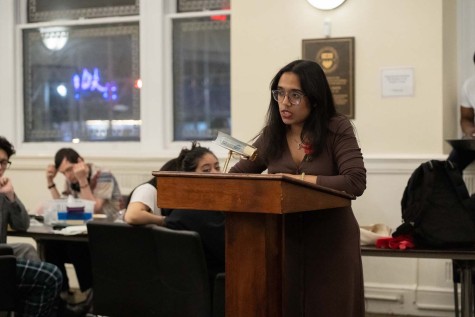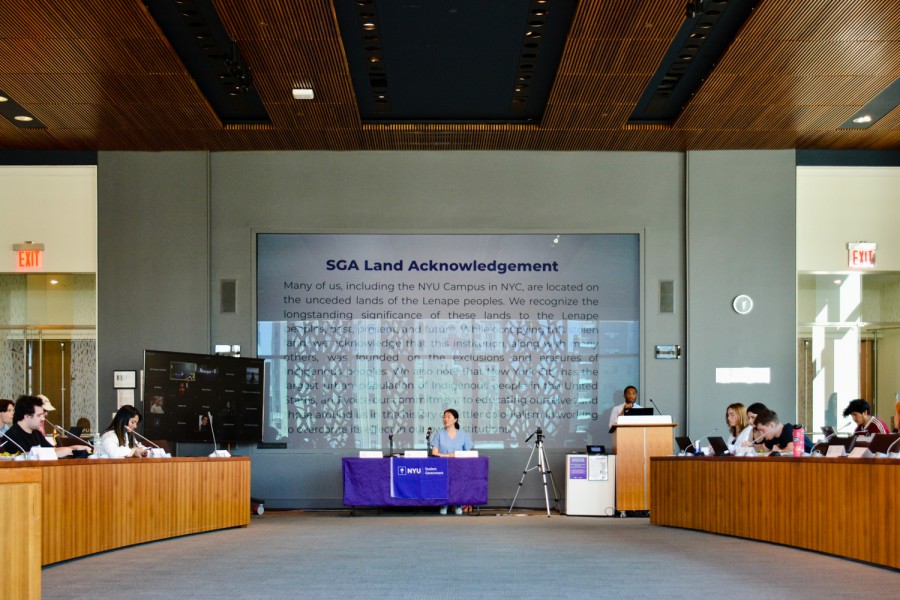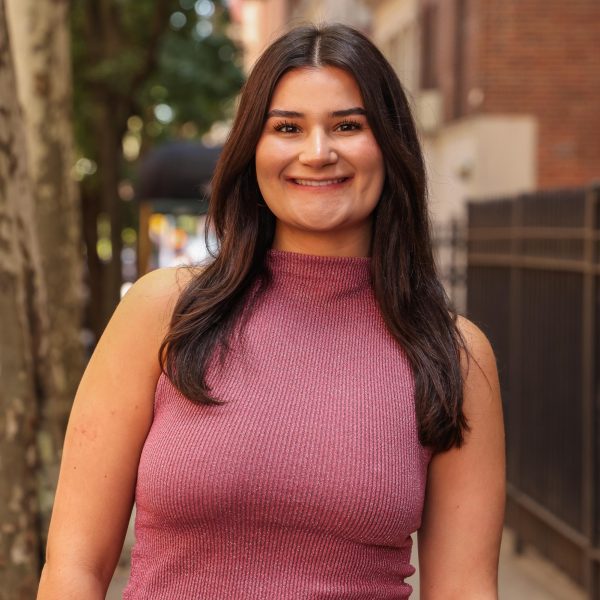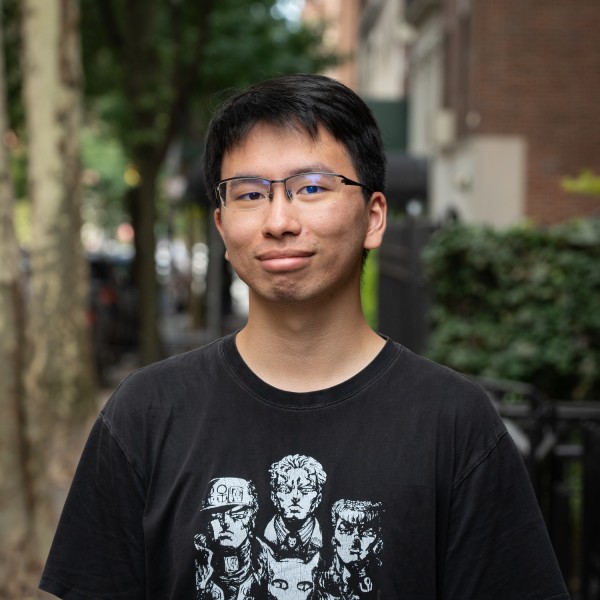CAS student council to hold schoolwide vote on campaign rules
After a candidate was disqualified from the CAS Student Council presidential election last week, the council has decided that the student body should have the chance to vote on proposed election guideline changes.
The student government meeting held on April 13 to elect a new chair. (Ananya Saxena for WSN)
April 20, 2023
NYU’s student government will let the College of Arts & Science student body vote on proposed amendments to the CAS Student Council election code — an extensive document outlining the body’s election procedures. The decision comes after one of the candidates running in this year’s presidential race was disqualified for violating the code, stirring controversy among members of the council. If passed, the proposed changes could overturn the result of the election.
“We fucked up, and we’re wanting to make things right,” said student government chair Ron Hall. “We hear the students, and as SGA, we want to do our best in advising and counsel.”
Last week, candidate Adiba Chowdhury was ousted from the CASSC presidential election after committing her second code violation. Over the last month, the council had charged her with campaigning in person and posting about her campaign on Instagram before she was permitted to, both forbidden in the election code. The election committee had previously dismissed the second violation on April 8, but current CASSC president Veronica Spinelli filed an executive order overturning their decision later that day. As a result of the order, Sam McCormack — the other candidate in the race — became the de-facto winner, despite reports that Chowdhury received the most votes.
Under the current code, if a candidate violates two or more rules, they are automatically disqualified from the presidential race. Under the proposed amendments, however, violations and consequences, if any, would be decided by a two-round voting process.

In the first round of voting, the election committee, which is composed of nine outgoing seniors in the CASSC, would decide whether a violation is valid. If the committee recognizes a violation, it would then vote on possible consequences for the candidate, which could include disqualification. The committee would need unanimous approval to disqualify a candidate from an election, according to Hall, who is currently on the committee.
This week, students will vote on whether to change the criteria for candidate disqualification, and, in the case the criteria are changed, if the new rules should be applied to the most recent election. The CASSC will email students an electronic ballot on Monday, April 24, and the vote will close the same Friday at midnight.
The day the election was decided, McCormack was also accused of committing an election code violation, according to the student body council president of the Graduate School of Arts & Science, Aakash Bhunia.
Hall said that, on April 8, the election committee received a report of McCormack violating the election code, but that it was dismissed by the committee. He said that a second allegation against McCormack was submitted five days later, but it was too late for it to be considered by the council, as voting had already closed.
Bhunia criticized the SGA for its lack of transparency over the CASSC presidential race, and said that both Spinelli and the student government dodged questions he sent them regarding the election. He said that he had only heard about the election fraud after seeing it published in the media.
“On the side of GSAS, we have become very skeptical about how they’re having the procedure,” he said.
McCormack said that although he understands the council’s decision to amend the election codes, he disagrees with the possibility of changes to the code affecting the past election.
“CAS Student Council, and really any organization on campus, has never made retroactive decisions due to the slippery slope that it sends future councils on,” McCormack said. “Being able to apply decisions retroactively puts a dangerous amount of unchecked power into the hands of the council, which could easily be abused in future councils.”
Contact Ania Keenan and Bruna Horvath at [email protected].





























































































































































